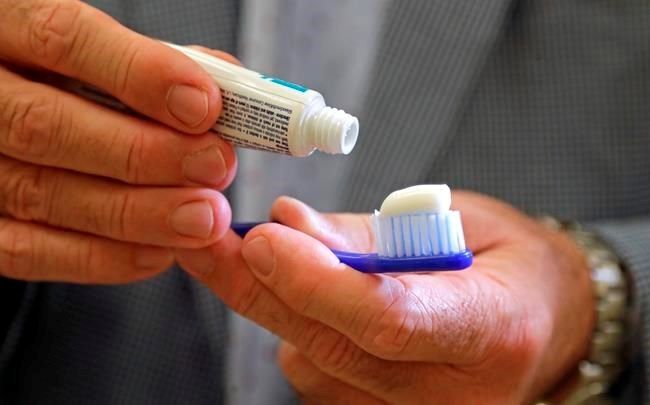OTTAWA — An association of health insurance providers warns it might not be worthwhile for small businesses to provide dental benefits to some employees once the government launches a national dental-care plan.
The Canadian Life and Health Insurance Association has pitched the idea of a federal tax credit for small businesses to convince them not to drop their coverage.
"When governments provide free coverage for any type of benefit, employers will naturally ask if they should continue to pay for those or whether their employees would be as well-served … moving to the public plan," said association president Stephen Frank.
"The risk is that a number of employers will say to themselves, 'Is there an opportunity for me to allow my employees to have equivalent coverage, but me not to have to bear that burden?'"
The Liberals announced in the latest federal budget that they will spend $13 billion over the next five years to provide uninsured low- and middle-income Canadians with access to dental care through a federal insurance plan.
The program is a key element of the confidence-and-supply agreement the Liberals signed with NDP last year to prevent an election before 2025.
It is intended only for qualifying Canadians who don't already have private insurance.
The Liberals introduced proposed legislation in the House of Commons that would force employers to disclose whether their employees have benefits as part of their tax filings, as a way to sort out who should have access to the federal plan.
Health benefits, including dental, are a deductible expense for business, but the insurance association says small enterprises don't see the same advantages as large corporations.
That means small businesses may be particularly tempted to drop their coverage, Frank said.
In February, the Canadian Dental Association urged the government to be careful not to disrupt existing private benefits as part of a policy paper on the new federal program.
"A situation where there is widespread off-loading of dental coverage from employers to the public sector must be avoided because a shift of any significant amount of private sector investment in dental care would quickly overwhelm government budgetary envelopes," the association wrote.
The Canadian Life and Health Insurance Association is proposing a 35 per cent tax credit for small businesses as a strong incentive to keep their existing insurance plans in place.
"That would level the playing field a little bit with some of the benefits that larger employers get from offering dental coverage, and … be a bit of a positive inducement to keep employers offering these benefits," Frank said.
His organization estimates that roughly 80,000 small employers currently offer dental benefits, though the Canadian Federation of Independent Business said that represents only a small share of small firms.
NDP health critic Don Davies said he's aware of the concern, but hasn't seen any evidence to suggest it is going to be a serious problem.
"We'll be able to, once it's in place, take a look with real data and experience and see what happens," Davies said in an interview Thursday.
Dr. Carlos Quiñonez, vice dean and director of the school of dentistry at Western University, said there is merit to the concerns. But so far, businesses don't seem to be rushing to shed responsibility for their dental benefits in anticipation of the federal program.
There are few Canadian examples that would provide any relevant data, but the introduction of the Affordable Care Act — or Obamacare — in the United States may provide some clues, he said.
The U.S. government included incentives and penalties to encourage employers to continue to offer private insurance.
A study looking at changes in offer, take-up and coverage rates for employer-sponsored insurance found that offer rates remained stable, and take-up and coverage rates increased, Quiñonez said.
He said his review of the literature on the topic isn't finished, but even a cursory look suggests Obamacare didn't damage employer-sponsored benefits in the U.S.
"If you don't want companies to drop employer-sponsored insurance then either give them a carrot or a stick, like they did in the United States," he said.
Public servants are still working on the design of the federal dental program, which is expected to launch at the end of 2023 for qualifying people under the age of 18, seniors, and people with disabilities.
Full implementation is expected by 2025.
This report by The Canadian Press was first published April 21, 2023.
Laura Osman, The Canadian Press




